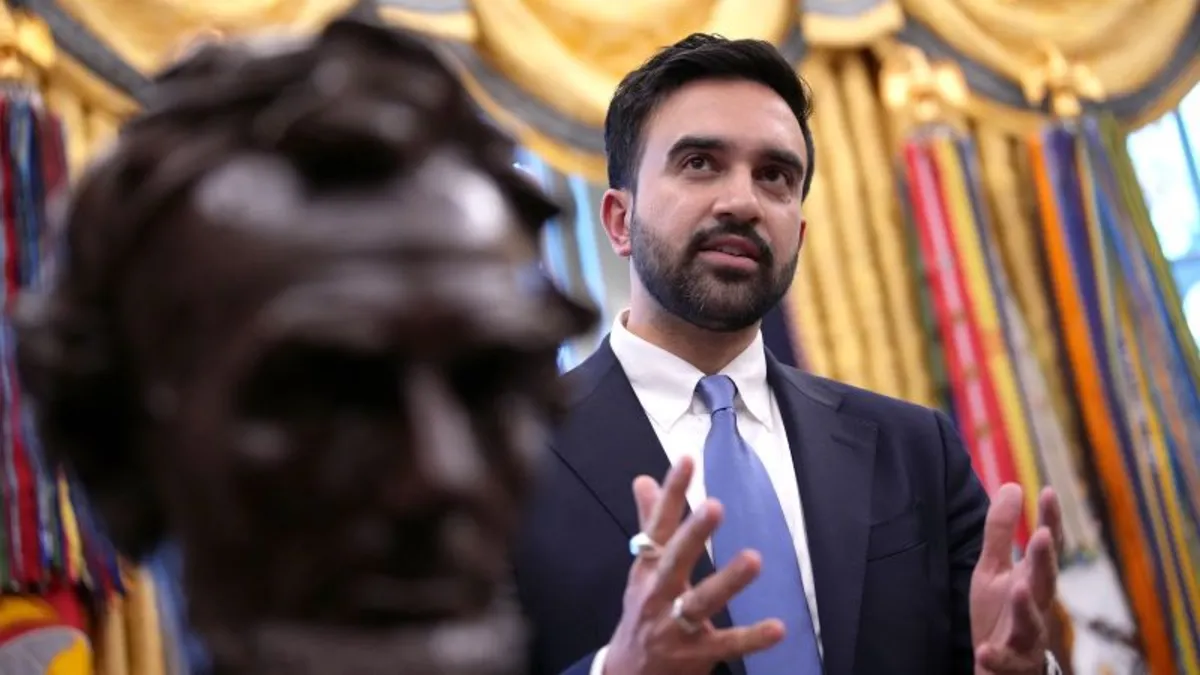
In the bustling streets of New York City, residents are known for their cautious optimism, particularly in the political arena. A day after Zohran Mamdani received an unexpectedly warm reception at the White House from President Donald Trump—who has publicly criticized the New York City mayor-elect as a “lunatic” and falsely labeled him a communist—many locals expressed a mix of skepticism and hope. John Lani, a Central Park runner, shared his thoughts with CNN, stating, “I really don’t like the guy, but I’m glad that he was able to go in there and do a good job with the president.” He highlighted the potential benefits for the city, mentioning, “Maybe we’ll get some funding, we won’t shut down congestion pricing. Maybe we’ll get some stuff for the subway; we’ll see what it does for the state.”
At just 34 years old, Mamdani, a democratic socialist and former New York State Assembly member, secured a decisive victory earlier this month, winning every borough except Staten Island, a known Republican stronghold. Near Central Park, amid the hustle and bustle of one of Manhattan's busiest intersections, residents praised Mamdani’s diplomatic approach during his televised engagement with Trump, although many remain wary of his future performance once he officially takes office on January 1.
According to a recent analysis by the Center for Urban Research at CUNY’s Graduate Center, the area surrounding Central Park, which includes Columbus Circle and the Trump International Hotel, had previously favored former New York Governor Andrew Cuomo, who ran against Mamdani as an independent. A voter who chose to remain anonymous expressed neutrality, saying, “I hope everyone’s very successful. I didn’t support either party.”
The relationship between Trump and Mamdani could prove pivotal for addressing several key issues in New York City. One major concern is whether Trump will intensify immigration enforcement and deploy federal forces, as seen in other blue cities. Additionally, critical infrastructure projects that rely on federal funding could be at stake. Many of Mamdani’s ambitious proposals—including making city buses fast and free, providing universal childcare, and increasing taxes on the wealthy—will hinge on the availability of state and federal funds.
After viewing coverage of the meeting, Manhattan residents Sherry and Steve Cohen reflected on Mamdani's strategy. “I’d like to think that Mamdani is being smart enough to play Trump and praise the man because he needs things for New York,” Steve Cohen remarked. His wife added, “Unfortunately, this is what you have to do. You have to bow down, praise him, and walk out and wash your hands after.”
Despite his declining popularity in New York City, Trump remains fixated on his hometown. He recently conceded that he would have loved to be mayor, striking a conciliatory tone during his meeting with Mamdani. Trump expressed his desire to assist the city rather than hinder it, suggesting that New York City is currently not a priority for deploying National Guard troops. “Right now, other places need it more,” he told reporters, indicating a positive outcome from the meeting.
Supporters of Mamdani, like Shelly Payson, believe that Mamdani's approach may have succeeded. “I think that Trump continues to be the most transactional president we’ve ever had,” Payson stated. “If people are smart, they find a way to give him something which may be meaningless, but it’s important to him, and then he loves you and rolls out the red carpet.”
As the political landscape continues to evolve, New Yorkers are left to ponder what this new relationship between Mamdani and Trump will mean for the city’s future.